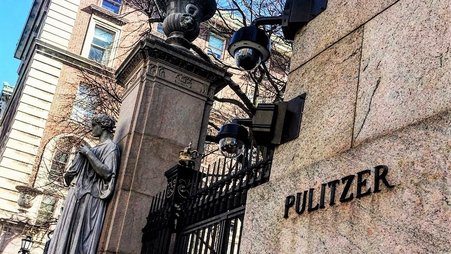Gawker.com, the pioneering and controversial media blog, officially died yesterday. It was killed by billionaire Peter Thiel in his successful quest to bankrupt Gawker Media Group through a series of lawsuits he funded – most notably wrestler Hulk Hogan, who sued over the publication of a portion of his sex tape four years ago.
Out of all the controversial topics that we’ve tweeted about at Freedom of the Press Foundation – and there have been a lot – by far the most negative response we’ve received is from Gawker critics who are happy to see the website die.
The Hogan case certainly brings up a lot of tangled questions about the tension between privacy and free speech and it’s understandable that many people have found Gawker’s decision to publish a clip of Hulk Hogan’s sex tape deplorable. (It’s also true that Gawker did a lot of exemplary investigative journalism). But condemning a specific story and cheering the demise of a media organization at the hands of the legal system are two very different things.
So here are a few questions we have for those who are celebrating Gawker’s death:
--Does it give you pause that, even if the Hogan post was offensive and should never have been published, that a federal judge and federal appeals court both ruled prior to the jury verdict that the post was likely “newsworthy” and protected by the First Amendment?
--Even if you think Gawker’s publishing of the Hogan tape should not have been protected by the First Amendment – again, as an appeals court previously ruled – do you think that it was fair that the jury awarded Hogan $140 million dollars, 145 times more than the average judgement in wrongful death cases in United States?
--Do you think it’s fair and just that Gawker – which employees dozens of journalists and staff that had nothing to do with the Hogan story – receive what amounted to the death penalty for one serious lapse in editorial judgement? Similarly, should the New York Times be taken to court and forced into folding for publishing false intelligence that helped lead the United States into the Iraq War? Should the Daily Beast be legally decapitated for its disgusting article from just two weeks ago potentially outed gay Olympians that live in oppressive countries?
--Do you agree that Gawker should have been barred from appealing both the verdict and the $140 million judgement before declaring bankruptcy and being forced to sell the company? As Gawker’s Tom Socca wrote yesterday, “The company was asking only to survive long enough to put the judgment before a higher court, on appeal. This is, supposedly, how the system works.”
--If you think “but Gawker outed Peter Thiel in 2007 and they posted other distasteful stories over the years too”, do you also think they should be punished for those posts in the court of law, even if they are considered protected speech?
--Do you agree with the variety of other lawsuits and legal threats that Gawker has endured from Peter Thiel’s lawyer that have nothing to do with the Hulk Hogan tape? Does it matter that those are garden variety libel suits that any first year law student can tell you are clearly protected by the First Amendment? Those cost Gawker millions in legal fees as well. If the Hogan suit failed, what if Gawker died by a thousand cuts instead, despite clearly being protected by the First Amendment?
--Do you think that because Gawker’s demise is something you agree with that the same thing won’t happen to newspapers you like in the future? Donald Trump has readily admitted to suing a former New York Times reporter – knowing he would lose – just to try to bleed him of money. Mother Jones spent millions in legal fees just to win a case against a vindictive billionaire in the early stages of litigation last year, only to see the billionaire turn around and start a million dollar fund for other people to sue members of the “liberal press.”
--Oh and by the way, the same law firm that Peter Thiel funded just sent threatening letters to Politico and the Daily Mail on behalf of Donald Trump’s wife Melania Trump and demanded they stop reporting on stories Trump considers false. Do you think they smell blood?
--Maybe you don’t have any sympathy for former Gawker editor AJ Daulerio, the author of the Hogan post, because of his tasteless and offensive joke that made headlines during the Hogan trial. But does that mean it’s perfectly fine for Thiel’s lawyers to bar Gawker from paying for the legal defense of Daulerio, and at the same time, freezing his personal bank account so that he has no money to hire his own lawyer? Should he be forced to defend himself in court without a lawyer?
--Do you think it’s fair and just that more than a half dozen individual reporters are still being sued by Peter Thiel’s lawyer in those non-Hogan related cases, and that Thiel’s legal team is attempting to prevent Gawker paying for the legal defense of those individuals as well? Should individual reporters face serious threat of bankruptcy for posts their employer assigned, sanctioned and published (and again, are protected by the First Amendment)?
--If Gawker is “mean” and “snarky” and has sometimes gone over the moral line by publishing private facts about public figures, should other gossip magazines be driven out of business by other deep pocketed celebrities as well? Should Hollywood band together and launch a thousand lawsuits against the National Enquirer and the Daily Mail and TMZ (even if courts have ruled they broke no law)? What about US Magazine and People? Where do we draw the line?
Maybe your answer is “yes” to some of these questions. After all, a lot of people hate a lot of media organizations, from the New York Times to TMZ. So I have one more: when every newspaper is forced out of business by one billionaire or another who took issue with stories that many consider distasteful or deplorable or outrageous, how many newspapers will be left?




